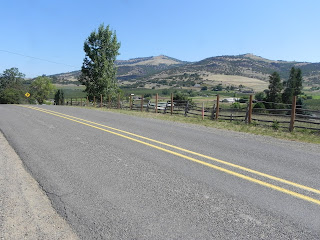Last spring, I started to notice that I was having a lot of stomach issues that I won't go into, and feeling extremely lethargic. I've had friends (including a former roommate) who are either gluten-intolerant, or have full-blown Celiac's. I've also had friends who discovered later in life that they were lactose-intolerant. These friends all described a variety of symptoms that at least somewhat matched mine.
 |
| Milk Bottling |
And after three weeks, it seemed like it was, in fact, a gluten-problem. My stomach problems mostly cleared up and I had more energy. Since I don't eat many processed foods, I don't think it was just eating fewer processed foods that did the trick.
So, I haven't gone back to eating gluten. I am careful to make sure I'm eating enough iron from other sources, and to eat nutritional yeast (a good source of B vitamins) regularly, because people who opt for a gluten-free lifestyle can have problems with getting enough of both of these nutrients. I'm eating more whole foods, for sure because buying highly processed gluten-free bread products is super expensive, and there are foods I miss (like a really delightfully chewy baguette!), but for the most part, I'm figuring out how to create the things I truly miss using gluten-free options.
That's also why I try to maintain this blog on a regular basis. It's important to add voices and resources to the gluten-free community, especially for people who are just venturing into a GF lifestyle, or who suddenly need to create a dish for someone who is gluten-free (or, gluten-free and vegan!). There are people who've been doing it for much longer, for sure, and there are other terrific gluten-free blogs out there that are solely gluten-free and always have been. That's not true for me. If you look back at my archives, you'll notice recipes that contain gluten. In fact, my most popular recipe from week to week, and of all time (based on number of hits and search engine key words) is for a gluten-based recipe for Reese's PB Cup cupcakes.
 |
| A pretty landscape! |
I think that's okay. Part of what I started this blog for was to talk about what it meant to be flexitarian -- to only eat meat as a condiment, or to be a not-overly-picky vegetarian (what, this is cooked with chicken stock? From a chicken that was formerly scratching about your yard [or not]? Well...okay....). What it meant to transition from one lifestyle to another. If you're a regular reader, you'll notice that same kind of transition as I start writing about gluten-free recipes, and increasingly, creating gluten-free and vegan recipes. Understanding the process of transition, especially if you're transitioning your diet as well, is important to making yourself a food-conscious consumer.
Please note: I don't advocate a gluten-free lifestyle for everyone. If you don't need it (and it has become a fad diet), you really should consult a nutritionist if it's still something you want to do. With veganism, I urge you to be conscious about the amount of processing that goes into some of the products you likely consume -- I'm thinking specifically of milk product alternatives. If you don't have a medical reason to avoid diary (for instance), it might be better to focus on minimally processed foods that were raised in a healthy, respectful way -- regardless of whether you choose to consume meat. My friend Marissa blogs about moving from a vegetarian lifestyle to eating meat for ethical reasons.